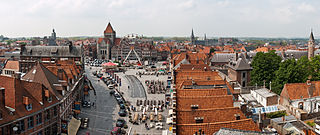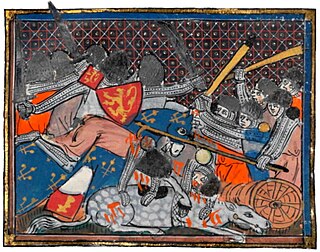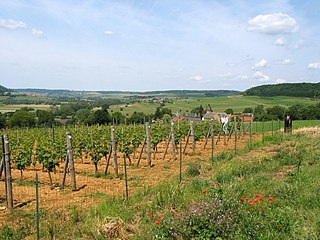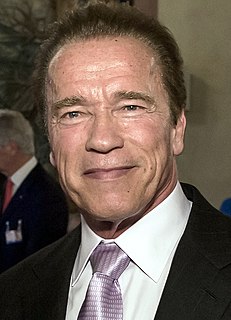
Flanders is the Dutch-speaking northern portion of Belgium and one of the communities, regions and language areas of Belgium. However, there are several overlapping definitions, including ones related to culture, language, politics and history, and sometimes involving neighbouring countries. The demonym associated with Flanders is Fleming, while the corresponding adjective is Flemish. The official capital of Flanders is Brussels, although the Brussels Capital Region has an independent regional government, and the government of Flanders only oversees the community aspects of Flanders life in Brussels such as (Flemish) culture and education.

Hulst is a municipality and city in southwestern Netherlands in the east of Zeelandic Flanders.

Dendermonde is a city in the Flemish province of East Flanders in Belgium. The municipality comprises the city of Dendermonde and the towns of Appels, Baasrode, Grembergen, Mespelare, Oudegem, Schoonaarde, and Sint-Gillis-bij-Dendermonde. Dendermonde is at the mouth of the river Dender, where it flows into the Scheldt. The town has a long-standing folkloric feud with Aalst, south along the same river, which dates from the Middle Ages.

Oudenaarde is a Belgian municipality in the Flemish province of East Flanders. The municipality comprises the city of Oudenaarde proper and the towns of Bevere, Edelare, Eine, Ename, Heurne, Leupegem, Mater, Melden, Mullem, Nederename, Volkegem, Welden and a part of Ooike.

Tournai, known in Dutch as Doornik and historically as Dornick in English, is a Walloon municipality of Belgium, 85 kilometres southwest of Brussels on the river Scheldt. In the province of Hainaut, Tournai is part of Eurometropolis Lille–Kortrijk–Tournai, which had 2,155,161 residents in 2008.

The Battle of the Golden Spurs was a military confrontation between the royal army of France and rebellious forces of the County of Flanders on 11 July 1302 during the Franco-Flemish War (1297–1305). It took place near the town of Kortrijk (Courtrai) in modern-day Belgium and resulted in an unexpected victory for the Flemish. It is sometimes referred to as the Battle of Courtrai.

De Clerck is a Dutch occupational surname, particularly common in Flanders. In the province of West Flanders, the name is usually concatenated to Declerck. People with the surname include:

Flemish painting flourished from the early 15th century until the 17th century, gradually becoming distinct from the painting of the rest of the Low Countries, especially the modern Netherlands. In the early period, up to about 1520, the painting of the whole area is typically considered as a whole, as Early Netherlandish painting. This was dominated by the Flemish south, but painters from the north were also important. Dutch and Flemish Renaissance painting, of which Antwerp became the centre, covers the period up to about 1580 or later, by the end of which the north and south Netherlands had become politically separated. Flemish Baroque painting was especially important in the first half of the 17th century, dominated by Rubens.
Cornelis is a Dutch form of the male given name Cornelius. Some common shortened versions of Cornelis in Dutch are Cees, Cor, Corné, Corneel, Crelis, Kees, Neel and Nelis.
Van Gent is a Dutch toponymic surname indicating an origin in the city Ghent, East Flanders. A variant spelling is Van Ghent. People with this name include:

Belgian wine is produced in several parts of Belgium and production, although still modest at 1,400 hectoliters in 2004, has expanded in recent decades.
The Flemish or Flemings are a Germanic ethnic group native to Flanders, in modern Belgium, who speak Flemish Dutch. They are one of two principal ethnic groups in Belgium, the other being the French-speaking Walloons. Flemish people make up the majority of the Belgian population.
The Hageland is a landscape in the Flemish Region of Belgium, situated in the eastern part of the Province of Flemish Brabant and extending into a western tip of the Province of Limburg. It is mainly comprised between the cities of Aarschot, Leuven, Tienen and Diest, and largely coincides with the historical County of Leuven. The French Government that controlled the area that later became Belgium in the last years of the 18th and early 19th century, had extended Limburg, which since then comprises the minor part of the Hageland at the city of Halen.

Flemish (Vlaams) also called Flemish Dutch, Belgian Dutch, or Southern Dutch is a Low Franconian dialect cluster of the Dutch language, as spoken in Flanders, a historical region in northern Belgium, by Flemings, the dominant ethnic group of the region. Along with Flanders, it is also spoken to some extent in French Flanders and the Dutch Zeelandic Flanders by approximately 6.5 million people.
Arend, Arent or Arendt is a Dutch masculine given name. Arend means "eagle" in Dutch, but the name derives from Arnoud/Arnout, which itself stems from the Germanic elements aran "eagle" and wald "rule, power". The form Arent also occurs in Norway. People with the name include:
Lieven is a Dutch language masculine given name. A Germanic name, it derives from Lief-win, meaning "dear friend". The name was popular in the Low Countries through the Anglo-Saxon missionary Liafwin who died around 775 in Deventer. Veneration of Saint Livinus of Ghent, who was probably invented in the 10th or 11th century and modeled after Lebuinus, made the name popular in Flanders and especially Ghent. Alternative spellings are Lieve, Lievin and the French-appearing Liévin. People with the name include:












